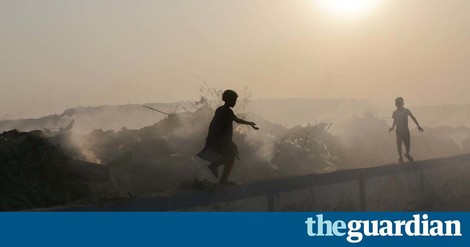Your podcast discovery platform
Curious minds select the most fascinating podcasts from around the world. Discover hand-piqd audio recommendations on your favorite topics.

piqer for: Climate and Environment Global finds Globalization and politics
I'm a freelance journalist, currently based in Madrid. I used to be a News Producer at CNBC in London before, but I thought a little bit more sun might do me good. Now I write for several news organizations, covering a range of topics, from Spanish politics and human rights for Deutsche Welle to climate change for La Marea.
Cassandra Was A Climate Scientist
In Greek mythology, Cassandra was the daughter of the king of Troy. She was given the power to see the future, and her prophecies were totally accurate. But here's the catch (and Cassandra's curse): nobody would believe her.
Now, when it comes to climate science, experts must be feeling quite like a princess of Troy. They can bring up all the evidence necessary, present it in all forms and shapes and still, people will just keep on with business as usual. And that's the greatest danger, according to Australian philosopher Clive Hamilton, in this piece for The Guardian.
I'll tell you the truth: I almost stopped reading this article (which is, in reality, a book extract) after a few lines. I felt it was too basic. But, out of sheer good writing style, I pushed through that and got gripped to the end. This text is important. And yes, it's quite basic, but that also makes it highly shareable.
In a nutshell: Earth is entering the Anthropocene, a geological era in which we, humans, are disrupting the planet's life-supporting systems. According to the author, there may still be a chance for survival, but we need an immediate, radical and total reaction. We are at the edge of the abyss. So why do we ignore it?
Of all the ideas that resonated with me, the one I'd like to highlight is the need to change our social paradigm. That includes us, social scientists and humanities people (and journalists). We need to start seeing the Earth as scientists already do: like a unit, a system from which us humans are not separate. Maybe people will then notice the huge trouble we're in.
Tragedy. That's the word Hamilton uses to describe the human attitude towards climate change. Or lack thereof. And it is indeed a tragedy, in the most literal sense of the word. A Greek tragedy, seemingly archetypical, but so real there's not a day without terrible news of its consequences.So today the greatest tragedy is the absence of a sense of the tragedy.
Cassandra says hi.
